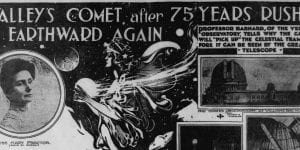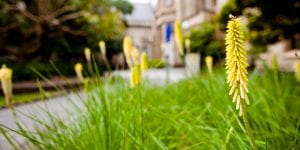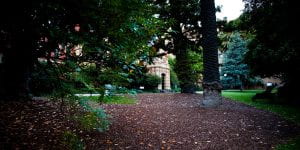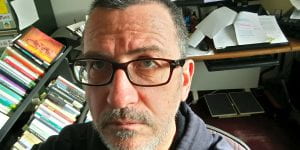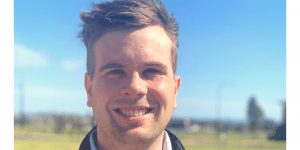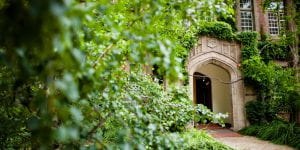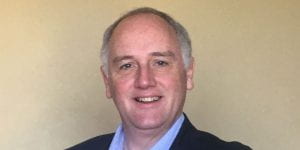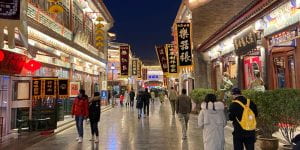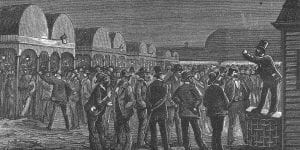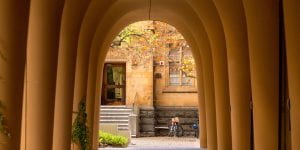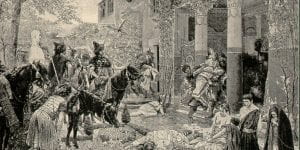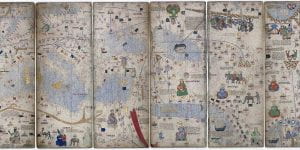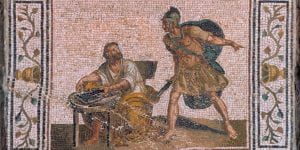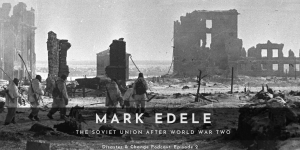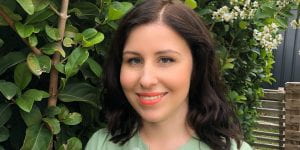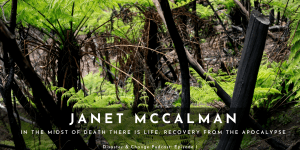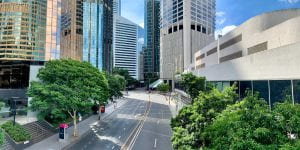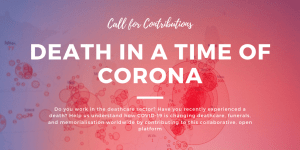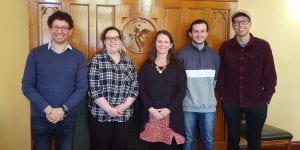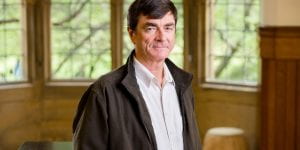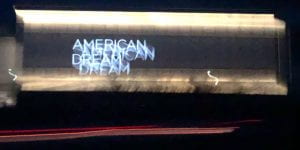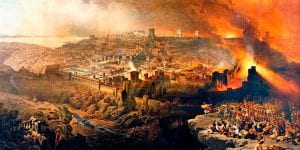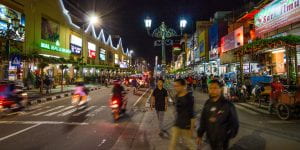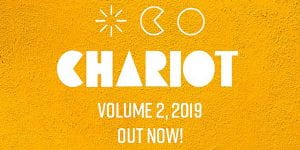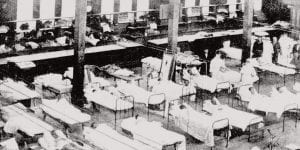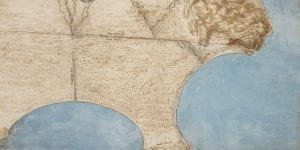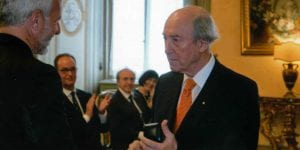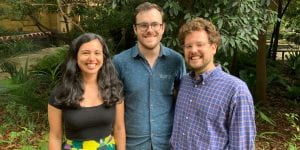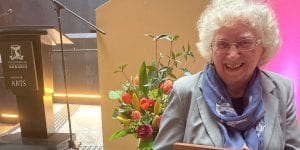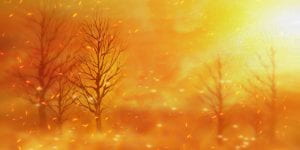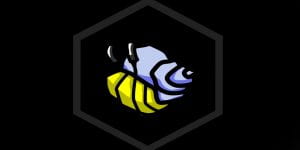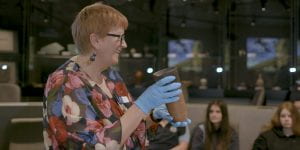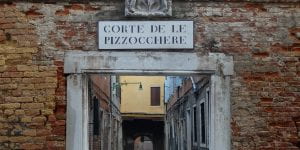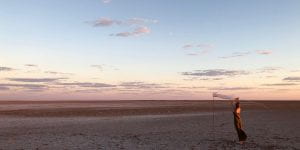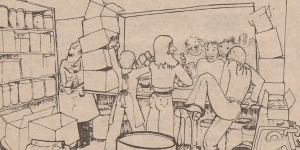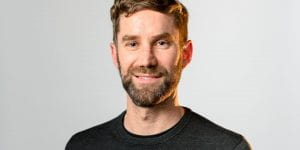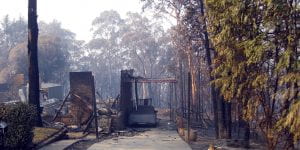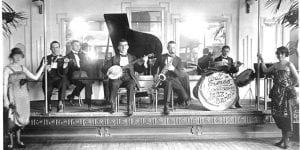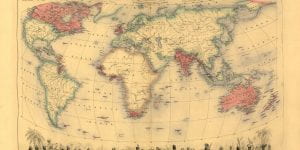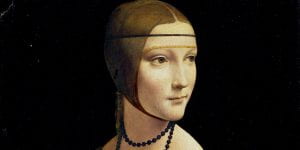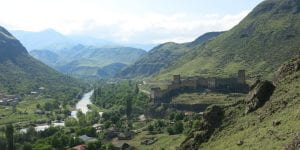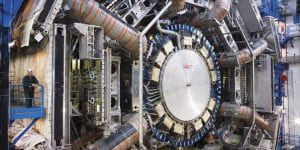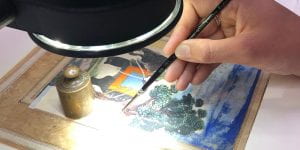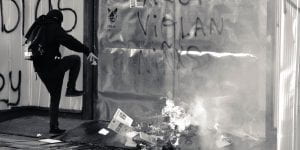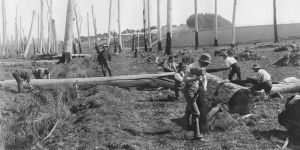dnicole
-
Mary Proctor: A Forgotten Populariser of Astronomy
In a recent History & Philosophy of Science seminar, SHAPS Research Fellow Dr Martin Bush presented his work on British-American populariser of astronomy, Mary Proctor, and her intriguing relationship to Australian history. From 1912–1914, Mary conducted a high-profile public lecture tour of Australia and New Zealand at the invitation of astronomer Walter Duffield. The purpose […]blogs.unimelb.edu.au/shaps-research/2020/06/03/mary-proctor-a-forgotten-populariser-of-astronomy
-
Daniel Nott
Daniel Nott, ‘Talking Sense to the American People: The Appeal of Adlai Stevenson in the McCarthy Era’ (MA in History, 2020) The purpose of the thesis is to investigate the enduring popularity of Adlai Stevenson with the liberal elements of the Democratic Party during the 1950s. This is worth investigating as he was the overwhelming […] -
Christopher Orrell
Christopher Orrell, ‘Communicable Knowledge: Medical Communication, Professionalisation, and Medical Reform in Colonial Victoria, 1855–66′ (MA in History & Philosophy of Science, 2020) This thesis examines the process of medical professionalisation in colonial Victoria from 1855 to 1866. During this eleven-year period the medical profession of colonial Victoria were able to create Australia’s first long lasting […]blogs.unimelb.edu.au/shaps-research/2020/06/03/christopher-orrell
-
Philip Patterson
Philip Patterson, ‘Virtue and the Three Monkey Defence: Regulating Ethical Conduct in the Australian Public Service’ (PhD in Philosophy, 2020) The thesis is an investigation of the efficacy of the ‘values-based’ ethics regulation system … operated by the Australian Public Service (‘APS’). Normative propositions which identify virtue, human character, or dispositions to behave, as determinatively […]blogs.unimelb.edu.au/shaps-research/2020/06/02/philip-patterson
-
Fergus Dale Prien
Fergus Dale Prien, ‘A Reliabilist Strategy for Solving the Problem of Induction’ (MA in Philosophy, 2020) In this thesis I develop a two-stage strategy in which a simple reliabilist theory of knowledge and justification can be employed so as to solve David Hume’s famous ‘problem of induction’. In so doing, the key arguments I make include: (i) […]blogs.unimelb.edu.au/shaps-research/2020/06/02/fergus-dale-prien
-
Belle Shapardon
Belle Shapardon, ‘The Sioni Cultural Complex: Cultural Complexity and Interaction during the Transcaucasian Chalcolithic’ (PhD in Classics & Archaeology, 2020) In the past, the Chalcolithic period (c5000–3500 BCE) in the Transcaucasus represented a poorly defined ‘interlude’ between the Late Neolithic and the Early Bronze Age. An understanding of this period was hindered by a lack […]blogs.unimelb.edu.au/shaps-research/2020/06/02/belle-shapardon
-
Evan Tindal
Evan Tindal, ‘Evaluating the Photooxidative Ageing Properties of 3D Printed Plastics: Strategies for Their Use and Conservation in Cultural Heritage Contexts’ (PhD in Cultural Materials Conservation, 2020) 3D printing is a fairly ubiquitous term today, due in part to the dissemination of the manufacturing technique to a wide variety of applications. While initially developed as […] -
John Whitehouse
John Whitehouse, ‘History Teaching as Conversation’ (PhD in History, 2020). The ability to engage in historical reasoning is fundamental to an education in history. What are the implications for educators? This thesis uses Greek and Roman historiography to discuss the learning and teaching of history. It offers a synthesis of two leading approaches to historical […]blogs.unimelb.edu.au/shaps-research/2020/06/01/john-whitehouse
-
Chinese-Australian Perspectives on the Pandemic: A Personal Reflection
History PhD candidate Luke Yin was on a research trip to China when the news of the COVID-19 outbreak was first made public. Returning to Melbourne in February 2020, he has been in a position to witness the pandemic from both Chinese and Australian perspectives. In this piece, he shares his reflections on how these […]blogs.unimelb.edu.au/shaps-research/2020/05/29/chinese-australian-perspectives-on-the-pandemic
-
Graham Berry, Democratic Adventurer: An Interview with Professor Sean Scalmer
Sean Scalmer, Professor of History in SHAPS, has just published a new book on the nineteenth-century Australian political figure, Premier of Victoria, Graham Berry. Democratic Adventurer: Graham Berry and the Making of Australian Politics tells the story of Berry’s ‘remarkable rise from linen-draper and grocer to adored popular leader’, and his role in shaping Australian […] -
Lian Zhou
Lian Zhou, ‘De Se Communication: Language, Thought and Co-aboutness’ (PhD in Philosophy, 2020) This dissertation is about the co-aboutness problem of de se communication. An essential requirement of successful communication is that participants of communication must talk about the same subject matter. I call this requirement the co-aboutness condition of communication. According to the traditional […] -
The Greco-Roman and Chinese Ancient Worlds in Comparative Perspective
In late 2019 Associate Professor Hyun Jin Kim received the highest honour for achievement in the humanities in Australia, when he was elected Fellow of the Australian Academy of the Humanities. To mark this occasion, PhD candidate Larissa Tittl interviewed Hyun Jin about his career as a scholar of ancient Greece, Rome and China. First, […] -
Will COVID-19 End Globalisation?
A spectre is haunting the world but it isn’t COVID-19, it’s the idea that the pandemic could lead to the end of globalisation. In an article originally published on the ES Global website as El coronavirus pondrá fin a la globalización?, Dr Ángel Alcalde, from SHAPS and Dr Jose M. Escribano, Universidad Pablo de Olavide, explore […]blogs.unimelb.edu.au/shaps-research/2020/05/16/will-covid-19-end-globalisation
-
How Plague Helped Make Rome a Superpower
Epidemics haunt history, but at a time of COVID-19 it pays to remember they shape history too, as happened in 212 BC at Syracuse. David Feeney, PhD Student in the Classics & Archaeology program in SHAPS, explores, this Ancient Roman plague during a time of warfare in an article republished from Pursuit. The dogs were […]blogs.unimelb.edu.au/shaps-research/2020/05/14/how-plague-helped-make-rome-a-superpower
-
Episode 2 in the SHAPS Podcast Series: Professor Mark Edele
Does an unplanned and large-scale calamity – a war, say, or a global economic crisis – lead to lasting social, cultural, and political change? This podcast explores this question with regard to the Soviet Union and World War II. The calamity of the war had a devastating impact on Soviet society, on the Soviet economy, […]blogs.unimelb.edu.au/shaps-research/2020/05/11/disaster-change-2
-
Meet Dr Sarah Bendall, McKenzie Fellow in History
In 2020, Dr Sarah Bendall joined the History program as a McKenzie Postdoctoral Fellow. A historian of material culture, Sarah specialises in the dress of sixteenth- and seventeenth-century England, Scotland and France. Sarah completed her PhD at the University of Sydney in 2018 and joins us after a post-doctoral fellowship at UWA working on the […]blogs.unimelb.edu.au/shaps-research/2020/05/08/meet-sarah-bendall
-
Professor Janet McCalman Opens Our New Podcast Series
We are excited to announce the launch of the SHAPS Podcast Series, with this inaugural episode, presented by Professor Janet McCalman, Redmond Barry Distinguished Professor in the Melbourne School of Population Health, and introduced by Professor Margaret Cameron, Head of SHAPS. Since 2015, our annual themed public lecture series has been a flagship event on […]blogs.unimelb.edu.au/shaps-research/2020/05/01/disaster-and-change-1
-
Journal of the Plague Year: An Online Archive of COVID-19 Times
Universities around the world are collaborating to crowd-source coronavirus accounts creating an archive of COVID-19 for future historians. Last month, we announced the launch of Journal of the Plague Year, an online archive of the experiences during the era of COVID-19, started by Arizona State University Associate Professors Catherine O’Donnell and Mark Tebeau. An Australian […] -
Death in a Time of Corona
The COVID-19 pandemic is dramatically changing how family and friends around the world can mourn and memorialise loved ones who pass away – from funerals limited to small numbers, to morgues, crematoria and cemeteries having to suspend routine processes in the face of unprecedented demand. The DeathTechNetwork – an interdisciplinary research group studying death technologies […]blogs.unimelb.edu.au/shaps-research/2020/04/16/death-in-a-time-of-corona
-
Why I Study History and Philosophy of Science: A Student Reflection
Samara Greenwood is a graduate student in her third year of History and Philosophy of Science (HPS). What began as a side interest quickly developed into a passion. In this personal piece, Samara reflects on what attracted her to HPS, what keeps her interested and her plans for the future. Where I started I began […]blogs.unimelb.edu.au/shaps-research/2020/04/13/why-i-study-history-and-philosophy-of-science
-
Associate Professor Howard Sankey Appointed to the Académie Internationale de Philosophie des Sciences
In 2019 Associate Professor Howard Sankey was elected to the Académie Internationale de Philosophie des Sciences (AIPS) in Brussels. This election marks his recognition as one of the world’s leading philosophers of science. To celebrate this achievement, we introduce Howard Sankey’s work below, in an interview conducted by Philosophy PhD candidate Adam Govers. When did […] -
Wave as Eigenzeit: A Meditation on Medial Time
In the 2019–2020 academic year, Dang Nguyen from History and Philosophy of Science in SHAPS is spending her time in the United States as a Fox International Fellow at Yale University in New Haven, Connecticut. As Yale closed its campus, Connecticut went under lockdown, Australia closed its borders, and Vietnam called for overseas Vietnamese to […]blogs.unimelb.edu.au/shaps-research/2020/04/04/wave-as-eigenzeit
-
A Journal of the Plague Year: An Archive of COVID19
The Melbourne History Workshop in SHAPS has launched the Melbourne node of ‘A Journal of the Plague Year: An Archive of Covid19’, in collaboration with our friends at Arizona State University, who initiated the project on 13 March 2020. MHW are encouraging everyone to document how COVID19 has affected their lives. Share your story in […]blogs.unimelb.edu.au/shaps-research/2020/03/27/a-journal-of-the-plague-year-an-archive-of-covid19
-
Disaster & Change 2020
In 2020, we will be sharing a series of podcasts and texts reflecting on the ongoing planetary crisis that we are all living through. How can the humanities help us to understand what is happening, to generate responses, and to imagine new approaches and solutions to the unprecedented challenges that face us in the days […]blogs.unimelb.edu.au/shaps-research/2020/03/27/disaster-change
-
Becoming a Transnational Scholar of Southeast Asia
In 2019, Caitlin Ryan (Masters of International Relations) and Hillary Mansour (Combined Honours in History and Indonesian Studies), and Michael Anderson (Honours in History) spent a week at Gadjah Mada University (UGM) in Yogyakarta, Indonesia, together with students and academics from universities across Asia, Europe and the Middle East. In this article, they tell us […]blogs.unimelb.edu.au/shaps-research/2020/03/24/becoming-a-transnational-scholar-of-southeast-asia
-
Announcing the 2019 Issue of Chariot Undergraduate History Journal
The History program is excited to announce the publication of the second issue of the annual undergraduate History journal, Chariot, a student-run initiative that was launched in 2018, as part of the revitalisation of History enabled by the Hansen Gift. We applaud our students’ energy and enthusiasm, and the hard work and creativity that they’ve […] -
Were These the Good Old Days? The 1919 Flu Pandemic in Australia
As we watch the global COVID-19 pandemic unfold, some scholars are looking back to the history of the worldwide influenza pandemic of 1918 to 1920. Mary Sheehan, PhD student in SHAPS, discusses the experience of those events 100 years ago in Australia, in this blog post, republished from Living Histories. Watching the rapid spread of […]blogs.unimelb.edu.au/shaps-research/2020/03/15/were-these-the-good-old-days
-
Out of Ancient Marshes
Archaeology at the site of the former Pontine Marshes has uncovered a massive but forgotten feat of ancient land reclamation revealing the early determination of the Romans to bend the world to their will. Dr Gijs Tol from SHAPS and Dr Tymon de Hass from Leiden University explore the discoveries on the site of the […]blogs.unimelb.edu.au/shaps-research/2020/03/08/out-of-ancient-marshes
-
A Conversation with Professor Emeritus Ron Ridley, Recipient of the 2019 Premio Daria Borghese
It’s not often that you will hear an esteemed academic describe him or herself as the “last of the scallywags”, but this phrase trips easily off the tongue of Professor Emeritus Ronald T. Ridley. His career has been distinguished by a dazzling versatility and range, earning him a long list of accolades. But he somehow […] -
Listening Across Boundaries: The Greg Dening Memorial Lecture 2019
Emeritus Professor Greg Dening (1931–2008) occupies an important place in the history of the History program at the University of Melbourne. As Tom Griffiths put it: “Greg was not only a wonderful historian but also a gifted teacher, and he believed that immersion scholarship could be transformative — of oneself, and also of the world […]blogs.unimelb.edu.au/shaps-research/2020/02/25/greg-dening-lecture-2019
-
Pioneer, Innovator, Mentor: Reflections on Pat Grimshaw’s Influence and Legacy
In December 2019, Professor Emeritus Patricia Grimshaw was awarded the University of Melbourne’s T.G. Tucker Medal. Named after the first Dean of Arts at the University, Thomas George Tucker, the Medal is awarded for outstanding academic achievement and contributions to the Faculty of Arts in the areas of teaching and learning, research, engagement and leadership. […]blogs.unimelb.edu.au/shaps-research/2020/02/17/pioneer-innovator-mentor
-
Our Savage History of Fighting Bushfires
This Australian summer brought with it devastating bushfires affecting many communities around the country. In Victoria, the bushfire season is frequently at its peak in February, but this summer has seen severe fires burning out of control much, much earlier. The hot northerly winds scorched parks and gardens, bringing soaring temperatures which all added to […]blogs.unimelb.edu.au/shaps-research/2020/02/13/our-savage-history-of-fighting-bushfires
-
Alternative Social Media Platforms: An Ethnographic Study of the Scuttlebutt Community
Can Open-Source Software (OSS) platforms offer ethical alternatives to Facebook and Twitter? How do technologies and social values interact with one another? And what might we learn from a close-up look at how OSS communities operate? A new research project in the History and Philosophy of Science explores these questions. Having found an intersection […] -
The Life You Can Save
Celebrating the tenth anniversary of his influential book The Life You Can Save, Professor Peter Singer discusses why we need to do more to improve the lives of people living in extreme poverty in this 2019 episode of the University of Melbourne’s Eavesdrop on Experts podcast. To listen, press play below. For the original podcast episode and […]blogs.unimelb.edu.au/shaps-research/2020/02/06/the-life-you-can-save
-
Hands-on Humanities: Bringing the Ancient World to Regional Victorian Schools
The study of classical antiquity and the ancient world more broadly has often been the exclusive domain of the privileged and leisured classes. State schools, especially rural ones, often lack the resources to provide their students with specialist instruction in these fields. Since 2016, Dr Sharyn Volk has been addressing this inequality through a project […] -
Exploring Venice’s Past and Present
From September to December 2019, History postgraduate researcher Jennifer McFarland was based in Venice as one of two Australasian Centre of Italian Studies (ACIS)-Save Venice research fellows at Save Venice Inc.’s Rosand Library and Study Centre. The fellowship supported archival research for her Master’s thesis, which focuses on the visibility and social role of pizzochere, […]blogs.unimelb.edu.au/shaps-research/2020/01/28/exploring-venices-past-and-present
-
Location, Relationships & Practice: The Con/servare Melbourne Forum 2019
In October 2019 the Grimwade Centre hosted a forum run by Con/servare, an international network for researchers and practitioners in the fields of conservation, material culture and attribution studies, co-founded in 2018 by Grimwade PhD candidates Ainslee Meredith, Julianne Bell and Eliza O’Donnell. In this blog post, Eliza O’Donnell introduces the Con/servare network, and reports […]blogs.unimelb.edu.au/shaps-research/2020/01/21/location-relationships-practice
-
Under No Management, Since 1976: A History of the University of Melbourne Food Co-op
For her final-year capstone project, History major Claire Hannon decided to investigate the origins of a longstanding student institution: the University of Melbourne Food Co-op, established in 1976. What had driven the Food Co-op’s founders? And how might the history of the Food Co-op help to inspire new forms of student activism today? Claire’s project […] -
Researching Masculinities and Violence Against Women: An Interview with Dr Shane Tas
After completing a PhD in History in 2019, Dr Shane Tas went on to become Senior Policy Advisor, Masculinities at Our Watch. In this capacity he acted as project lead and author of a major report, Men in Focus: Unpacking Masculinities and Engaging Men in the Prevention of Violence Against Women, launched in November 2019. […]blogs.unimelb.edu.au/shaps-research/2020/01/09/researching-masculinities-and-violence-against-women
-
How to Care for and Recover Personal Items after Bushfire
The devastation wrought by the Australian bushfires has been immense and, as the fires continue to burn, the final loss won’t be known for many months. While the impact on the environment, human and animal life is overwhelming, for many individuals the loss of personal items such as photographs, documents, artwork and personal treasures is […] -
‘Helicopter Parenting’ and ‘Tiger Mothers’? Relax, Australian Kids are Alright
It would be easy to believe, if you pay attention to the media, that Australian children are in poor shape. Kids, we are told, have too much screen time, too little exercise, too many scheduled activities and not enough risk and freedom. Earnest commentators constantly critique ‘helicopter parenting‘, ‘tiger mothers‘, ‘intensive mothering‘ and ‘bubble-wrapped children‘. […] -
Protecting Australian Women from American Jazz: The Hidden Aim of the 1927 Tariff Inquiry
The 1927 Tariff Board inquiry into the import duty on gramophone records coming into Australia was about more than industry protection. In fact the piano roll industry, which might be expected to be the one most concerned about the impact of imported records, wasn’t particularly worried. But others were. Henry Reese, SHAPS PhD graduate, explores […] -
Uncovering Connections in Britain’s Empire: An Interview with Professor Zoë Laidlaw
Upon finishing her Honours at Melbourne, Zoë Laidlaw went on to complete her postgraduate degree at Oxford. After 20 years in the United Kingdom, she returned to the University of Melbourne in September 2018. PhD candidate Jonathan Peter spoke to Zoë recently about her experiences as an academic, her research interests, as well as current […] -
The Remarkable Journey of Leonardo’s Inscrutable Masterpiece
Leonardo da Vinci’s portrait of Cecilia Gallerani, known as the Lady with an Ermine, is one of Poland’s national treasures, but the painting has had an extraordinary history. Dr Darius von Güttner, Principal Fellow (Honorary) in SHAPS, tells us more in an article republished from University of Melbourne’s Pursuit. Over a decade ago the Czartoryski […] -
Castles, Caves and Rock Shelters
Archaeology in the rugged landscape of Georgia reveals a medieval world where caves and underground shelters provided refuge from raiders, allowing a threatened civilisation to flourish. Classics & Archaeology PhD Candidate Abby Robinson, along with Giorgi Khaburzania, Field archaeologist, National Agency for Cultural Heritage Preservation, Georgia, tells us more about the history of these ancient remains. […]blogs.unimelb.edu.au/shaps-research/2019/11/29/castles-caves-and-rock-shelters
-
Philosophy at the Large Hadron Collider: An Interview with Sophie Ritson
Sophie Ritson completed her honours degree at the University of Melbourne in 2011, majoring in the History and Philosophy of Science. After finishing her PhD at the University of Sydney, Sophie’s academic work took her to Austria. She is now part of a large interdisciplinary team exploring how scientific knowledge is produced at the Large […] -
Three Months at the Rijksmuseum
Grimwade Centre student Laura Daenke is currently completing an internship in the Paper and Photo Department at the Rijksmuseum in Amsterdam. Here she talks to Isabella Walker about what she has learnt and observed over the course of her internship, and how her studies at the Grimwade prepared her for this experience. Tell us a […]blogs.unimelb.edu.au/shaps-research/2019/11/22/three-months-at-the-rijksmuseum
-
We live in a world of upheaval. So why aren’t today’s protests leading to revolutions?
We live in a world of violent challenges to the status quo, from Chile and Iraq to Hong Kong, Catalonia and the Extinction Rebellion. These protests are usually presented in the media simply as expressions of rage at ‘the system’ and are eminently suitable for TV news coverage, where they flash across our screens in […] -
Sri Lanka Election: Will the Country See a Return to Strongman Politics?
Sri Lanka’s presidential election on Saturday comes at a critical time for the country. The government has been in turmoil since President Maithripala Sirisena sacked the prime minister last year and replaced him with former strongman Mahinda Rajapaksa, a move that sparked a three-month constitutional crisis. Then came the Easter bombings this year that killed […] -
A German Solution to an Australian Problem? 1890s Unemployment and the Leongatha Labour Colony
After Volkhard Wehner was awarded a PhD in 2017 for his thesis on the history of Victoria’s German-speaking community (1850–1930) he soon realised that after completing that milestone, life does not suddenly end. Rather, it opens up countless new possibilities. After reflecting on the transition from the pressures and intensity of the PhD experience, he […]
Number of posts found: 447
